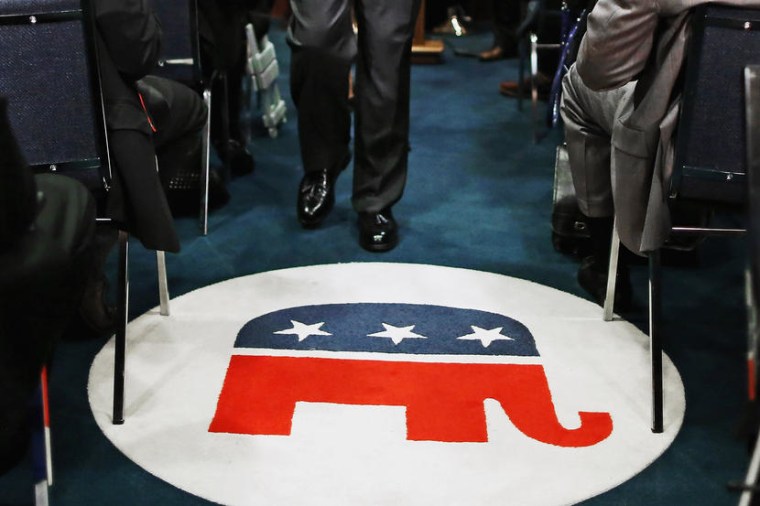Taken individually, some of the reporting on the Republican Party this week may seem discouraging to GOP supporters, but taken together, they're arguably worse.
First up is this polling report from Gallup.
Americans' opinions of the Republican Party have worsened in recent months, with 37% now saying they have a favorable view of the party, down from 43% in November. This decline, along with a slight increase in the Democratic Party's positive ratings, to 48%, gives the Democrats a rare double-digit advantage in favorability.
As recently as October, ahead of Election Day 2020, Democrats and Republicans enjoyed roughly identical favorability ratings. Now, Democrats have seen their support inch higher, from 45% to 48%, while the GOP has seen its support shrink from 44% to 37%.
Meanwhile, the New York Times took a closer look this week at the number of voters who've changed their party registrations of late.
An analysis of January voting records by The New York Times found that nearly 140,000 Republicans had quit the party in 25 states that had readily available data (19 states do not have registration by party). Voting experts said the data indicated a stronger-than-usual flight from a political party after a presidential election, as well as the potential start of a damaging period for G.O.P. registrations as voters recoil from the Capitol violence and its fallout.
It was against this backdrop that we discussed earlier a new Reuters report that said dozens of former Republican officials, "who view the party as unwilling to stand up to former President Donald Trump and his attempts to undermine U.S. democracy," have held preliminary discussions about creating a new center-right party. The talks reportedly included former officials from Republican administrations, party strategists, and even some former GOP elected officials.
So, let's take stock. The Republican Party has lost control of the White House. It's also lost control of Congress. The GOP's public standing is faltering as some of its members decide to give up on the party altogether.
Republicans are currently led by a failed and unpopular former one-term president, and members eager to shift the focus to the GOP's substantive ideas are out of luck: the party has neither a platform nor a governing agenda.
All things considered, it's not a great position for a national party to be in. There's no shortage of questions about the road ahead, but let's briefly consider three of the most obvious:
1. Why is this happening? It's tempting to think Republicans are struggling because voters are rejecting their failures and extremism, but it's not quite that simple. In the Gallup data, for example, the GOP's slide in support came almost entirely in changes among Republican voters themselves, who've soured of late on their own party.
Some of this may be the result of rank-and-file GOP voters tiring of Republicans becoming a conspiratorial, anti-democracy, pro-Trump party, but some of it may also be the result of some rank-and-file GOP voters concluding that Republicans aren't being enough of a conspiratorial, anti-democracy, pro-Trump party.
2. Will it last? The GOP has suffered through similar downturns. Indeed, at the end of the Bush/Cheney era, the party was in a similar state -- shortly before the 2010 midterms when Republicans made dramatic gains. The difference is, the GOP decided 12 years ago to define itself as being against whatever President Barack Obama was for. In 2021, the party hasn't quite settled on how it'll define itself.
3. What does the party intend to do about it? For now, the answer appears to be, "Nothing." Republicans generally appear comfortable to follow Trump, wait for time to elapse, and count on gerrymandering and voter-suppression tactics to help return them to power.
It's a strategy that may very well work, despite the GOP's many troubles. But if President Joe Biden remains popular, and he oversees an effective economic recovery and pandemic response, Republicans may discover "nothing" wasn't quite enough.
